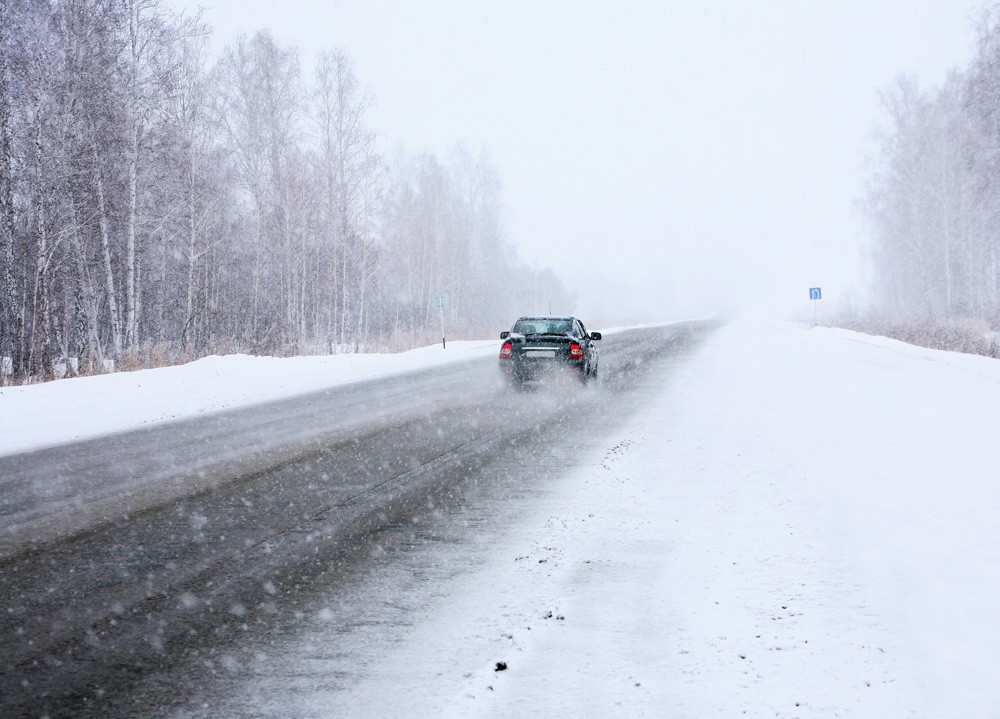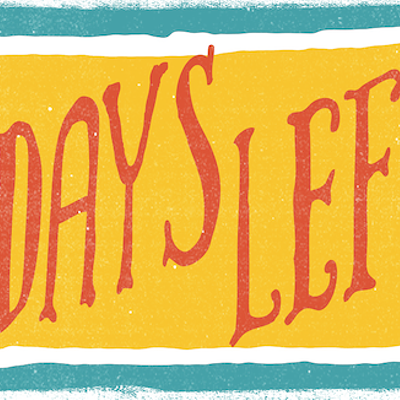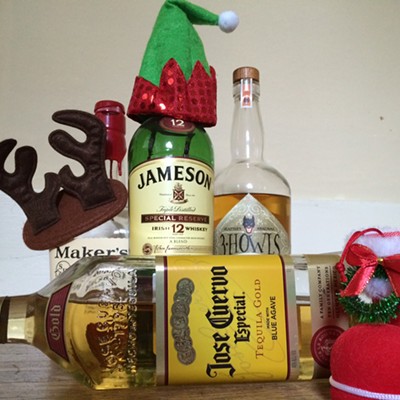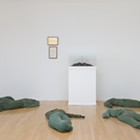In just the right amount of words, Rick Boal’s Back into the Storm touches on the sadness and misunderstandings of relationships — between husband and wife, between sister and brother. But also, there’s forgiveness and the realization that things can get better. Going on this year’s fiction contest theme, the bridge in this story, which plays a pivotal role in the final scene, is a very real one, yet much more is “bridged” between characters in the metaphorical sense of the term. — Laura Johnson
We attended two funerals last summer. Brenda's favorite aunt finally faded away from Alzheimer's, like a Silly Putty copy of herself stretched thin until the image became distorted, opaque, then unrecognizable. The following weekend her best friend, and maid of honor at our wedding, was killed in a car wreck. For months, Brenda spun between grief, anger and guilt, emotional outbreaks fluctuating hourly some days. And now, this: Another death, her only brother. Complicating matters, she hates him.
"He betrayed and abandoned me — all of us — when I was just fifteen," she said tersely our first Thanksgiving together as we stared at an old family group shot on her mother's mantle.
"You said your father knocked up a waitress when you were twelve," I reminded her. "It seems to me that his leaving and shacking up with some woman is a much bigger betrayal than your brother splitting. I left home at eighteen, too."
"You don't get it, I was glad when Dad moved out. What Robert did was unforgivable."
"What did he do?"
She scowled and headed for the kitchen. "I don't want to talk about it." So she didn't, not for years.
"It" occurred when she, sister April and their mother returned from Robert's high school graduation, twenty-five years ago. He was one of three honor students out of fifty-two seniors, but the only one with a black eye, which he'd refused to talk about. Brenda was about to give him his graduation present when, without any warning, he began yelling and angrily announced that he was gay.
"Yes, I'm a goddamned faggot! You happy now? I hate this place!" he screamed. "And I hate all the stupid, bigoted assholes in this goddamned hick town!" They were stunned by his unexpected fury. "I'm leaving. I can't live here anymore!" Brenda was still clutching the gift-wrapped box when the squeak and slam of the screen door killed the family she thought she knew.
He never phoned or wrote. Ray, a gay cousin he maintained contact with, later told them Robert moved south to Phoenix. He intermittently passed along news over the years — that Robert hosted wild, all-night parties fueled by booze and a vast array of drugs, that he'd been evicted and fired numerous times, arrested twice for DUIs, and lived with a violent boyfriend who pummeled him more frequently than any rednecks ever had.
Robert didn't show up for their father's funeral nineteen months after graduation, but no one could blame him for that. Their dad was a mean drunk who'd regularly berated his son. There was no such excuse, though, when Robert failed to show up for their mother's service a decade later. As far as my wife was concerned, two people were consigned to the casket the day her mother was buried.
Then, last New Year's Eve, he phoned their sister. She immediately hung up on him. A week later he called Brenda and told her he was dying of cancer, which was a lie. The doctors later told us that his illness was actually AIDS-related. He was down to his last few breaths, but his shame was still vibrantly alive, refuting the truth. "I have lung cancer."
Brenda stayed on the line a long time, mutely cradling the phone until she finally sighed "Okay" and hung up. She stared vacantly at the telephone, chewing on her bottom lip. I led her to bed and she cried herself to sleep.
When we arrived at the hospital, Robert muttered a perfunctory apology about his abrupt exit years ago and never brought it up again, treating the estrangement as a "My, my, time certainly does fly," non-issue. He enjoyed chatting with her about unimportant things, difficult as it was for him to speak. When the nurses removed the oxygen mask to feed him or apply salve to his flaking lips, I could see family genes etched in his hollow face: Brenda's eyes, her mother's cheekbones, their father's denial.
I usually left them alone and spent my time developing bad posture watching brainless television in the waiting area. Brenda settled into her new routine at his bedside. They talked about favorite movies and songs, great restaurants, celebrity gossip. She reminisced about family members, although he became irritable and withdrawn whenever she mentioned their mother.
He loved discussing any aspect of his cancer and symptoms; the topic of dying, however, was taboo. "Don't be so morbid," he'd snarl and change the subject. Brenda waited for him to open up, to move beyond trite subjects and his avoidance of significant issues. That was a pipedream.
Each night at the destitute Desert Inn — Cheap Weekly Rates! — we were forced to listen to blaring telenovelas and drunken arguments in Spanish echoing through the building. Our cramped room had thin walls, a loud heater and sandpaper sheets. Brenda took long baths most nights, trying to soak the sorrow away. Afterwards, she'd crawl into bed and snuggle in my arms to escape the day's memories, away from the whooshing sounds of oxygen machines, the constant beep of monitors measuring a failing body, and his desperate struggle for air.
Robert was barely conscious our third week there, only able to talk a few hours each day. Whenever he jolted awake his wide eyes scanned the room like a terrified, trapped animal. He had clearly not been gifted with grace or acceptance about his imminent departure, both rejecting and despising the fact that he was going to die, right up to the instant he did.
He was transferred to hospice on Fat Tuesday. "I'd prefer... to go to... New Orleans," he weakly smiled at me as ambulance drivers, nurses and aides crowded the room, preparing him for the move. "It's usually... my favorite day... of the year. Kind of like... Independence Day... Christmas and... Halloween all... all rolled up... into a giant gay holiday..." His eyelids drooped. "Maybe next year." He beckoned me closer and put a shaky, boney finger to his lips. Brenda was occupied with a doctor in the hall. Robert produced an envelope hidden under his blankets and whispered, "For later." I nodded, put the packet in my coat pocket and promptly forgot about it as attendants squeezed me out of the room.
A rare snowfall descended onto the Arizona desert that morning. As the attendants wheeled Robert across the icy parking lot, ivory puffs floated onto his face. His eyes were alert; he gawked and grinned like an excited kid packing the first snowballs of winter. Two days later, just as Phoenix hit eighty degrees again, Robert gasped one last time and all warmth left him forever.
I remembered the envelope a week later during breakfast. We were north of Pocatello and home was just one state away. The envelope contained a life insurance policy for twenty-five thousand, made out to Brenda, and a one-line will scribbled on a bright post-it. She couldn't finish eating and spent hours in silence while we drove north.
I finally started to speak. "Brenda —"
"Screw you. I'm not going to do it."
She pulled the pink knit cap tighter over her ears, partly for warmth (our ancient Chevy had heater issues) and partly to block me out. She looked more like a sulking coed than a mature woman. I think I'd responded to her sadness and mood swings pretty well the past month, but her remark stung and I almost snapped back at her. Instead, I took a deep breath and tried again.
"Brenda, you don't have to do anything you don't want to."
"I'm not going to do it. He was a jerk. Why should I do anything for him? Especially now."
"I agree."
"Then why are you arguing with me?"
"I'm not, you're arguing with yourself!"
Damn. I took another deep breath. "Look, last month you didn't even care if he was alive. This week you held his hand while he died. You took the high road, honey, you did the right thing and I'm proud of you. I love you. Why are you so upset about his last request?"
"Because it's all I have left!"
I said evenly, "All that's left is a bag of ashes and bone chips. Keep it if you want to, bury it or do what he asked. I don't care, do what you need to. But don't let this eat you up."
"Don't tell me what to do!" she shouted. "He isn't your brother!" This was nothing new, so I shut up and focused on driving, waiting for the temporary insanity to pass. She turned away from me and glared out the steamy side window. A blur of skeletal tree limbs, gray skies and barren hills splattered with white patches whizzed by.
Ten miles later, calmer but with a shaky voice, she said, "I... I didn't expect to ever see him again, you know? I actually liked him when we were young. I looked up to him. It's not my fault he grew up to be such a dick." She shook her head, sighing. "That's not true. He's the same guy he was as a kid. Funny and mean and smart. And scared." She shrugged slightly. "He didn't really change much. I remember the summer he was a junior and a bunch of us were jumping off a bridge into the river when a snake slithered by. He started screaming like a girl, 'Water moccasin! It's a water moccasin!' I swear, he jumped halfway up a tree, crying and screaming."
"I didn't know there were water moccasins in Montana."
"There aren't, it was only a garter snake, but he wouldn't admit it. He just..." and her voice trailed off. She looked at me, put her hand on my thigh. "I'm sorry, babe. I know this hasn't been easy for you, living with a crazy person." Her eyes welled and a teardrop traced her cheek. "It's all I have left of him," she repeated.
I held her hand, trying to reassure her. We traveled quietly for a while, reflective, a river peacefully gliding alongside the road to our right. "I think Robert had one really bad day," I said. "The sad part is that he kept reliving it for the rest of his life."
"You're right. Pull over."
"What? You mean now? Brenda, it's snowing."
"Pull over," she said again. "There's room, pull over there."
Blinker flashing, I carefully guided the car off the road and onto the gravel shoulder.
"We already passed the state line, didn't we?"
I nodded and she said, "All right then, let's do this." She twisted around and grabbed the aluminum shipping container from the back seat. The next moment, her door was open and she was tramping through the snow towards the river, firmly gripping the canister. I hurried after her. After them.
She stopped at the edge of the steep bank, ten feet above the fast-moving water, yanked the top off the container, pulled out the heavy plastic bag stuffed with Robert and spoke to him.
"Okay. Robert, you were a miserable son of a bitch. I would have come years ago if you'd only asked me, but you didn't because you're a stupid, selfish jerk. And even now you guilt-trip me to get your way." Adding with a half-grin, "Just like you used to." She reached into the bag, her hand clenching his ashes. "Welcome home."
She flung a fistful of Robert into the air. The ashes momentarily held a form, like a confused grey ghost unsure what to do, but in a blink he was gone, swallowed by the falling snow. She grabbed the bottom seam and flipped it over, the bag flapping noisily in the wind as it emptied. Rough blankets of powder and grit swirled around us before scattering, the arctic drafts lifting him high. We stood there, squinting, until he disappeared one last time and then we walked back to the car.
"I'll drive," she said. ♦
About the Author
Rick Boal has now had the bittersweet honor of earning a runner-up nod the past three years in a row in the Inlander's Short Fiction Contest. Boal writes fiction regularly and remains active with the local writing group "Got Lit?," which grew out of the Get Lit festival several years ago. He has also accumulated a variety of careers, ranging from SAG actor to comic book distributer to timeshare salesman.





















